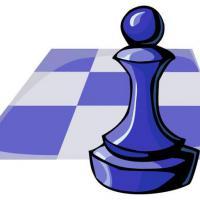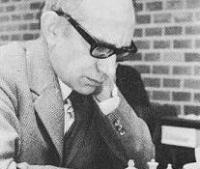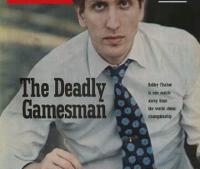
The Soul of Chess
Francois André Danican Philidor (September 7, 1726 – August 31, 1795) was born in Dreux France. His father was seventy-nine at the time! He was a French composer whose operas were successful and widely known in his day and who was a famous and remarkable chess player. The family was distinguished; many were noted musicians. As far back as the 1650’s, the Philidor’s had been active in French music. Francois was ordained by God to be a musician but he became so fascinated by chess that he neglected his studies and became a chess player! He was both a chess and musical prodigy.
Francois was sent off to the chapel choir at Versailles when he was six years old. One of his teachers was the important composer and theoretician, Andre Campra. At the age of twelve he was composing, and his first musical composition was played before King Louis XV!
He was taught chess by some of the musicians at Versaille and it was said that Louis XV wanted to listen to the choir almost every day, and the singers, while waiting for the king to arrive, played chess to relieve their boredom; this may have sparked Philidor's interest in chess.
In 1740 he came to Paris, where he inevitably drifted to the Café de la Regence and there took lessons from Kemur Sire De Legal. Initially Legal gave him rook odds, until the young Philidor became too strong; then he surpassed his teacher. It was there that he discovered a flair for blindfold chess, and startled the clientele by taken on two players simultaneously. Later Philidor astounded his peers by playing three blindfold chess games simultaneously in the chess club of St. James Street in London on 9 May 1783. Philidor let all three opponents play white, and gave up a pawn for the third player! Even when he was in his later years, when he was 67 years old (1793), he played and won two blindfold games simultaneously in London.
He was regarded as the best chess player of his age. Philidor was a remarkable and essentially positional player, which might be the reason we cannot find brilliant games from him. He did not need too much imagination to win; he was far ahead of his contemporaries. Andrew Soltis writes that Philidor "was the best player in the world for 50 years. In fact, he was probably about 200 rating points better than anyone else yet alive—set apart by the mysteries of the game he had solved.”
I can affirm that neither before nor after has there been a chess player with such a difference of level! Just take a look how he scored against Stamma, an outstanding chess player, composer and writer: +8 =1 -1, despite the fact that Philidor let Stamma have White in every game! May be only comparable with the result of another chess genius: Paul Morphy!
In 1749, Philidor published his famous book Analyse du Jeu des Échecs. He printed a second edition in 1777 and a third edition in 1790. The book was such an advance in chess knowledge that by 1871, it had gone through about 70 editions, and had been translated into English, German and Italian. But his legacy, his trademark were the analyses in three key ending positions: King and Rook versus a King, Rook, and pawn; Queen versus a Rook; and Rook and Bishop versus a Rook, and in the opening theory of the Philidor Defence! I recommend you guys learn these endgame positions by heart and I am pretty sure your rating in chess will improve!
Philidor's name is also associated with a fundamental chess tactic commonly known as Philidor's Legacy, a smothered mating pattern involving a queen and knight. However this is only a traditional name, as the tactic first appeared in print in a book by Luis Ramirez de Lucena. Although it seem to be Greco who discovered or at least popularized the idea!
He died on August 31, 1795, in London and was buried in St James, Piccadilly.






